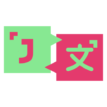You want to learn a language and you don’t know where to start? I have been there! Learning a language is challenging, daunting, and an endless marathon. Whether you are starting French, Korean or Swahili, here are some tips to get you started.

1. Learn Verbs and How to Use Them
Okay Jéssica… You’re a native Portuguese and French speaker, you should know one doesn’t learn verbs just like that. Yes, I know. Nonetheless,
If your first language has no or very little conjugations (e.g. English, Chinese languages, Swedish, etc…) the idea of learning 50 variations of the same word and their slight change of meaning is probably daunting. But practically speaking, you don’t really need to know them.
Listen, I am a language teacher. Of course, I loooove when my students come up with a perfectly grammatically correct sentence. But I am also realistic. If they want to express the idea that they want a coffee, and they say “eu querer café” instead of the correct “queria um café”, I will be content because any native speaker will understand what they’re trying to say.
With the knowledge of the 50–100 most useful verbs, even without knowing all tenses and conjugations, you will get far. Grammar will come with time.
Verbs such as:
- Think
- Want
- Can / be able to
- to be / to be located
(and of course, many, many more) are fundamental to understanding and being understood.
2. Learn elements of time and space.
Now this is where the magic happens.
You don’t remember the second person plural of that one past tense that you use when talking about a habit? Oh but wait, you do know how to say “before”, don’t you? So now all you have to say is “before I eat junk food every day”, and the person in front of you will naturally get the idea that your eating habits were not always the healthiest.
All that to say that at a beginner level, knowing how to say things like here, there, before, after, today, yesterday, etc. are of utmost importance, as they allow your idea to translate with very few words or grammar.
3. Check basic adjectives
As human beings, we are constantly describing what we see, feel, taste, etc. Knowing basic adjectives is fundamental to have a conversation and make friends.
No need to make a-100-adjective-list. For example, you probably don’t need to remember magnificent, as long as you know beautiful. Remember that these are tips for you to start speaking and once you do, it will be much easier to grab more precise vocabulary as you go.
4. Learn the most used expressions
Think of how often you use the word “desk”… now try to remember how many times you’ve said “oh my god” (or one of its variations) just today. Don’t lie, I’m sure your boss has made you say it a couple of (hundred) times already.
Expressions like these are not only useful, but they also appear in what native speakers say.
Here are a few examples of useful expressions. The goal here is not to look for their direct translation in your target language, but rather to look for the equivalent a native would use in a similar context.
- “That’s funny!”
- “Oh my God/Gosh/goodness” etc
- I (don’t) think so
- I guess
- Of course / Sure
- Why not?
- …
5. Make a list of the words you use daily in your own language
Last but not least…
After all, the person speaking the language is you. You want what you say to reflect who you are, your personality, and your mood. For that, you need to think of the words that you use often in the language(s) you are fluent in.
Start writing that list down and if you can’t think of those words, start telling a story to yourself and see which words come back often that are not in your vocabulary list yet.
…
Hi, my name is Jéssica and I am a full-time language teacher and an apprentice journalist. I speak 5 languages and I am fascinated by anything linguistic-related. If you liked this post, don’t hesitate to pin it on Pinterest and check my Etsy store where I share some templates to help you in your language journey.


Pingback: Learn a Language for Free - Languages with Jéssica